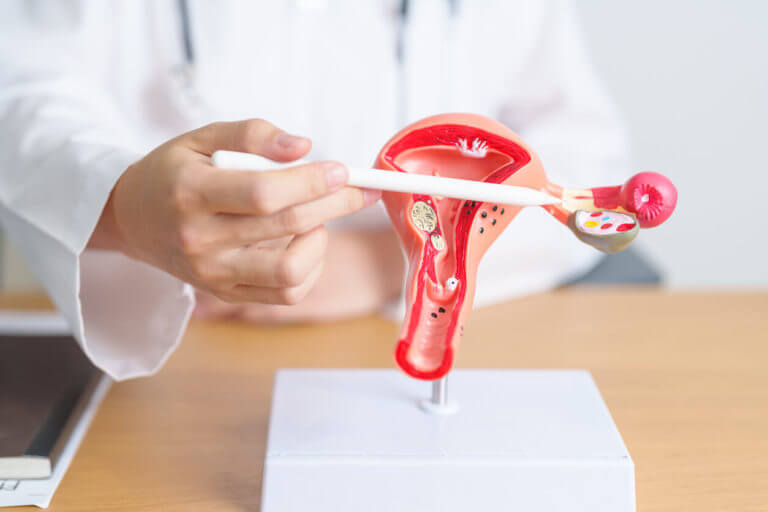
Polycystic ovary syndrome (PCOS) affects millions of women globally, often causing hormonal imbalances, irregular periods, weight fluctuation, and fertility challenges. As frustrating as these symptoms can be, adopting specific diet and lifestyle changes can help ease their impact.
This article, developed with insights from leading PCOS gynecologists at University OB/GYN Associates, offers actionable diet and lifestyle strategies to better manage PCOS naturally.
Why Focus on Diet and Lifestyle With PCOS
Polycystic ovary syndrome is closely linked to insulin resistance, inflammation, and hormonal imbalances. Improving what you eat and how you live can target these factors directly, helping regulate menstrual cycles, manage weight, improve fertility, and reduce long-term health risks like heart disease.
A PCOS gynecologist often emphasizes lifestyle changes as an essential part of treatment — and for good reasons. Combined with medical care, these adjustments enhance the effectiveness of any prescriptions or fertility treatments you may be receiving.
The benefits of holistic PCOS management are:
- Improved insulin sensitivity
- Better hormonal balance
- Reduced inflammation
- Stabilized weight
- Healthier skin and decreased acne
- Enhanced emotional well-being
Dietary Tips from PCOS Gynecologists
Here are some dietary tips from a PCOS gynecologist that can help you manage symptoms.
1. Focus on Low Glycemic Index (GI) Foods
Foods with a low GI help regulate blood sugar and reduce insulin resistance. Include more whole grains, legumes, and vegetables in your meals, and avoid high-sugar snacks and processed carbs. For example:
- Include oats, quinoa, barley, lentils, leafy greens, and broccoli.
- Avoid white bread, regular sodas, rice cakes, and sugary desserts.
2. Add Anti-Inflammatory Foods
Reduce inflammation, a common issue with PCOS, by including these beneficial foods:
- Fatty fish like salmon and mackerel
- Olive oil, nuts, and seeds
- Berries such as blueberries and strawberries
- Turmeric and ginger
3. Balance Your Meals With Protein and Healthy Fats
Combining lean proteins, like chicken or tofu, with healthy fats from avocados, nuts, or olive oil helps regulate hunger hormones and keeps you fuller longer.
For example, try a grilled chicken and quinoa salad drizzled with olive oil alongside steamed broccoli.
4. Consider Moderate Dairy Consumption
Many patients with PCOS notice their symptoms improve by reducing dairy intake. Consider alternatives like almond or oat milk, but ensure your calcium needs are met through foods like leafy greens, sesame seeds, or supplements if needed.
5. Integrate Micronutrients
Nutrient deficiencies can worsen PCOS symptoms. A PCOS gynecologist may recommend foods rich in zinc, magnesium, and vitamin D:
- Magnesium: Found in spinach, almonds, and bananas
- Zinc: Present in pumpkin seeds and lentils
- Vitamin D: Obtain it through sun exposure or foods like fortified cereals and fatty fish
6. Practice Portion Control
Eating too frequently or consuming large portions can cause spikes in insulin levels. To maintain balance, practice portion control by:
- Using smaller plates
- Eating slowly to recognize fullness cues
- Avoiding distractions like TV during meals
Lifestyle Changes for Better PCOS Management
Lifestyle adjustments work hand-in-hand with a healthy diet to improve PCOS symptoms. Here is what a PCOS gynecologist recommends.
1. Exercise Regularly
Physical activity can improve insulin resistance, reduce stress, and promote weight loss. Aim for a mix of:
- Cardio (e.g., brisk walking, cycling, dancing) for at least 150 minutes weekly.
- Strength training (e.g., bodyweight exercises, resistance bands) to build muscle and improve metabolism.
- Gentle practices like yoga or Pilates to support mental well-being.
2. Manage Stress Levels
Stress can worsen symptoms by increasing cortisol levels, which disrupt hormones. Consider practices like:
- Mindfulness meditation
- Deep breathing exercises
- Journaling
- Spending time in nature
3. Prioritize Quality Sleep
Sleep impacts hormonal balance significantly. Follow these tips to improve sleep quality:
- Stick to a consistent sleep schedule.
- Limit caffeine intake, especially in the afternoon.
- Aim to avoid screens at least 30 minutes before bedtime.
4. Maintain a Healthy Weight
Even modest weight loss — just 5–10% of your body weight — can greatly reduce PCOS symptoms. Focus on gradual changes in diet rather than drastic diets.
5. Avoid Smoking and Limit Alcohol
Smoking worsens PCOS-related inflammation and hormone imbalances, while excessive alcohol impacts liver function, which is crucial for hormonal regulation.
When to Consult a PCOS Gynecologist
While diet and lifestyle changes are powerful, they work best in collaboration with personalized medical care. A PCOS gynecologist can guide you through tailored treatment options like hormone replacement therapy (HRT), ovulation stimulators, and advanced diagnostic scans.
Early intervention is crucial for reducing long-term risks such as type 2 diabetes and endometrial cancer.
PCOS Gynecologist in Syracuse, NY
At University OB/GYN Associates, we understand that every PCOS journey is unique. Our compassionate and experienced team of OB/GYNs provides personalized care to help you regain hormonal balance and improve your quality of life.
We offer:
- Comprehensive diagnosis and treatment plans.
- Education about diet, exercise, and fertility treatments.
- Supportive care for long-term health.
Feel better, live better, and take control of your PCOS today. Schedule a consultation with a PCOS gynecologist at University OB/GYN Associates by calling (315) 470-7575 or using our appointment request form. We look forward to serving you!



